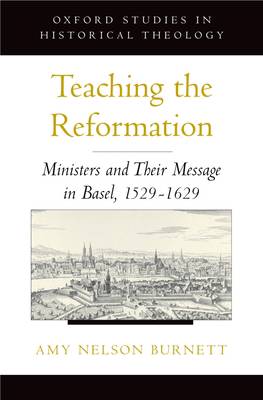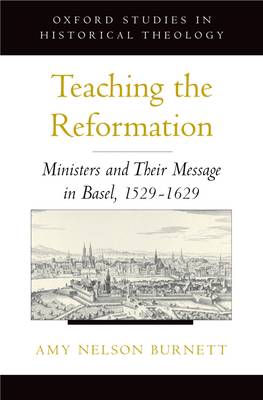
- Retrait gratuit dans votre magasin Club
- 7.000.000 titres dans notre catalogue
- Payer en toute sécurité
- Toujours un magasin près de chez vous
- Retrait gratuit dans votre magasin Club
- 7.000.0000 titres dans notre catalogue
- Payer en toute sécurité
- Toujours un magasin près de chez vous
Teaching the Reformation
Ministers and Their Message in Basel, 1529-1629
Amy Nelson (Professor of History, Professor of History, Universi
205,45 €
+ 410 points
Description
Examines the four generations of Reformed pastors who served the church of Basel in the century after the Reformation. This work focuses on the evolution of pastoral training and Reformed theology, the theory and practice of preaching, and the performance of pastoral care in both urban and rural parishes.
Spécifications
Parties prenantes
- Auteur(s) :
- Editeur:
Contenu
- Nombre de pages :
- 460
- Collection :
Caractéristiques
- EAN:
- 9780195305760
- Date de parution :
- 26-10-06
- Format:
- Livre relié
- Dimensions :
- 234 mm x 160 mm
- Poids :
- 808 g

Les avis
Nous publions uniquement les avis qui respectent les conditions requises. Consultez nos conditions pour les avis.






